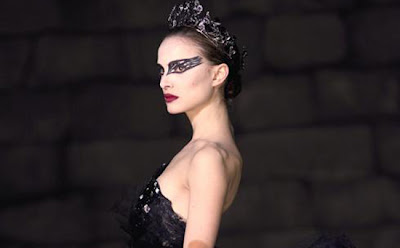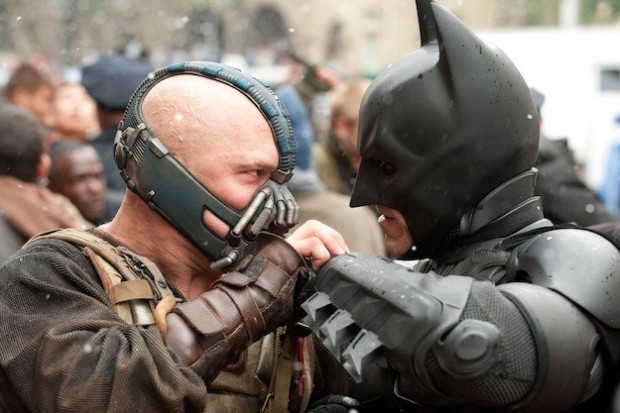Black Swan review

Director: Darren Aronofsky
Starring: Natalie Portman, Mila Kunis, Vincent Cassel
Synopsis: Talented, innocent ballet protegee Nina Sayers (Portman) is desperate to be cast as the lead role of the Swan Queen in director Thomas Leroy’s (Cassel) new production of Swan Lake. Yet with competition fierce, none more so than in the form of rival dancer Lily (Kunis), Sayers finds herself slowly unravelling as she becomes increasingly obsessed with the role.
by Luke Jones.
As a companion piece to 2008’s The Wrestler there is much to superficially link Black Swan with its predecessor. Both focus on athletes pushing their bodies to the very limits in pursuit of their art. Both feature breathtaking central performances from their leads, and both are filmed in intimate, veritė manners that put the viewer at the centre of their worlds. Yet Black Swan is a different beast to The Wrestler, a psychological thriller that offers moments of shocking body horror amongst an unflinching look at the world of ballet.
Even seen through the prism of considerable praise that has been bestowed upon her, Portman is masterful throughout and fully deserving of the attention. That Portman can act we already now, from her astounding child debut in Lėon through to sexpots like Alice in Closer, but her turn as fragile Nina Sayers is emotionally draining without ever stepping into melodrama. From the moment of her introduction, Sayers is presented like a tightly wound-spring, an ever present source of tension lurking underneath her innocent exterior. With her outside world represented by claustrophobic apartments and nightclubs, her freedom comes through the expanse of the rehearsal room and the stage itself. While enthusiasts may be able to pass better judgment on her skills, to the untrained eye she is completely believable as a ballerina with years of training (although digital trickery and body doubles are sure to have played their own important roles).
With such a powerful lead role, the rest of the cast are left to support Portman with solid results. Kunis is perfectly fine as the younger, sexier rival, and Cassell brings his gallic charisma (and Tardis-like nostrils) as Sayer’s mentor and tormentor. As the two of them draw Sayer from within her shell they ooze eroticism, with Kunis’ scenes in particular sure to set a few adolescents on sexual awakenings of their own.
Like Mickey Rourke before her, Winona Ryder plays a little close to home as the former Prima Donna struggling with an industry obsessed with youth. Most effective is Barbara Hershey as Nina’s mother, another ballerina struggling to deal with the hand that life has dealt her and holding on to fading dreams. Hershey’s nuanced performance does much to elevate her from being another pushy mother role to someone who may actually understand Nina far more than she realises. Her scene with Nina, offering her cake as celebration for landing the lead role, shows her as domineering yet caring, with hints at a struggle with depression driving her to want more success for her daughter. That success requires sacrifice and pain on Nina’s part is a failing of the industry rather than her mother.
Meanwhile Aronofsky adds to his reputation as one of America’s most visually arresting directors. Teaming again with Fountain cinematographer Matthew Libatique, Aronofsky has crafted another feast for the eyes, from the gracefully choreographed dance sequences to the nightmarish maze of backstage. Although simplistic, the film is awash with symbolism; black against white, virginity against promiscuity, restraint against indulgence, becoming more pronounced as Sayers becomes increasingly fractured. There is some pleasingly nasty body horror too, with toe-nails splintering and bones crunching in a way far more blood-curdling than any torture porn scene.
Mention must also go to the sound design of the film, with every breath and pad of ballet shoes on wood amplified. With ballet such an integral part of the film, composer Clint Mansell does a wonderful job of weaving Tchaikovsky’s score with his own original music. There are some majestic orchestrations of the most popular cues, used throughout the film in several crowd pleasing moments.
In a way Black Swan is the perfect film for justifying the existence of the Oscars. Despite it’s more extravagant moments, it is still a character drama that has seen increased exposure thanks to the publicity surrounding Portman’s performance. Yet Black Swan proves to be more than just a show for Portman's talents, with it's final words providing an adequate review of the film; 'It was perfect'.


Comments
Post a Comment